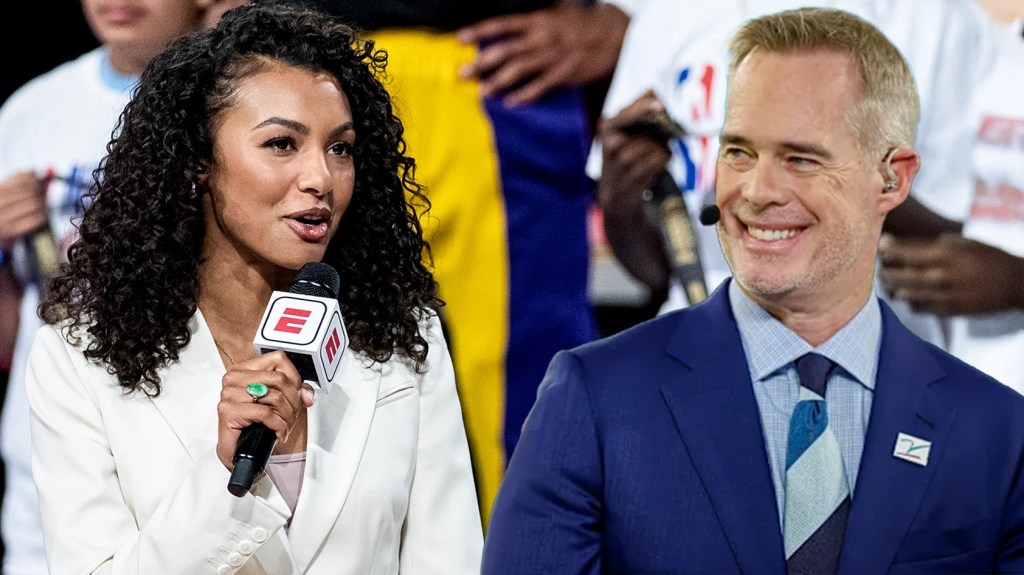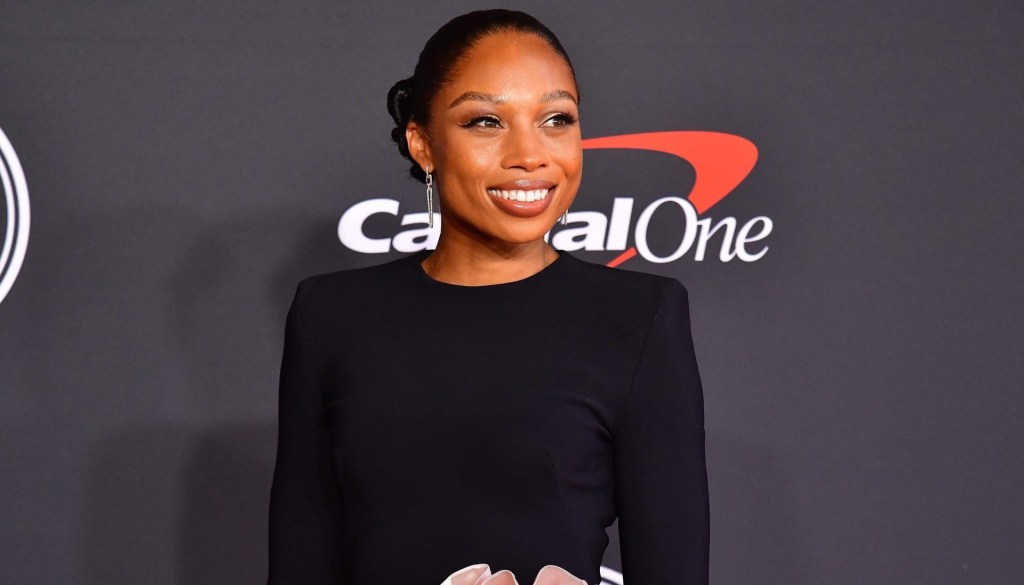By: Travis Gorsch, @tgorsch3

Front Office Sports is proud to have sat down with Scott Correira, President of Play By Play Sports, LLC & Notre Dame Sports Properties. Mr. Correira created his own company called Play By Play Sports in 2002 after leaving Host Communications. He attributes most of his success to his ability to create relationships through effective and professional communication. Mr. Correira was gracious enough to offer up valuable insight about the risks and rewards of a sales career, why you have to be persistent in your pursuit of your goals and why it is important to get involved during school through volunteer opportunities and internships.
You earned your Bachelors Degree in Radio and Television from Shippensburg University and went on to get your MBA from George Mason. How important is your education when pursuing a career in sports?
I was a radio and TV major as an undergrad at Shippensburg University. I originally wanted to be an on-air broadcaster. As I went through the process, I realized that was something I didn’t want to pursue after all. However, I developed a lot of communication skills in the process. Later on, when I got in to sports, it certainly helped me. It also helped me with sales, which I have spent most of my career doing. The MBA gave me the business background I didn’t get during my undergraduate education. It helped me when dealing with corporations throughout the sales process and when I started my own company. Your education helps you from a positioning stand point to have as a credential on your resume.
You worked at AT&T for seven years in sales before entering the sports industry. How did your experience in that sales position lead to success in your future positions?
I learned a great deal about the basics of sales working for a Fortune 500 company. I was able to get a lot of training and learned how to sell. I learned how to go out in the market and make cold calls, hone my sales approach, and hit quotas and numbers. This was a commission based position, so I was under pressure to hit my quota every thirty days. I took my sales experiences and parlayed it in to a sales position in the sports marketing industry. When I was first getting into sports I asked myself what background I had. I had extensive experience in sales and so I had to translate that to sports.
When you first arrived at Notre Dame you worked for Host Communications Inc. which had held the marketing rights of Notre Dame Athletics since the mid-1980’s. You left the company in 2002 to start your own company (Play By Play Sports, LLC). How were you able to take this risk at the current time? What advice do you have for young professionals about taking risks like this?
I kind of got to a point in my life where I looked at long term goals more than lifestyle. I looked at where I was in my life with my family and things like that. I had always had an interest in having my own company. By 2002, I was thirty-eight years old and had the education and experience on my side. My experience at Host gave me small business experience.
I felt like I had all the tools to be successful in running my own business. The risk that was involved wasn’t a huge risk. I felt that I would always be able to ‘get a job’. Maybe it was riskier than I thought at the time, but I left Host on good terms. I felt I could always go back and get a job with them or elsewhere if things didn’t work out. I wanted a challenge. That’s why I started my own company. It was risky in terms of cash flow and making enough money to support my family.
In a highly competitive market how do you differentiate your brand from your competitors? As successful as you have been, what has stopped you from representing other collegiate athletic departments around the nation rather than just exclusively representing Notre Dame?
Originally, it was contractual when I got involved with Notre Dame; that was their requirement. I had a vision about how I could personally do that. They felt confident that we could work together and accomplish it. They asked me to commit 100%. I now have a little more flexibility after the first ten years.
To me it’s more about finding our niche and working with people that have the same philosophy as us. You have to ask ‘where are our resources and meaningful relationships?’ Now we are working out in the northeast with the University at Buffalo, the Atlantic Hockey Conference, the new Barclays Center in Brooklyn, and with Ball State University in Indiana as well. I have branched out in the last couple years. It’s more of a strategic decision on how to grow.
Can you talk about the importance of networking and creating relationships with professionals in positions that you aspire to be in some day?
Networking is huge; it goes with everything as well as personal relationships. The more people you know, the better you can utilize your networking skills to expand your reach. Everyone starts in the same boat. We all had to get in to this business which is typically where the willingness to help comes from. In terms of networking and how you can achieve it, meet as many people as you can and ask them for advice and guidance. That’s one reason I’m doing this interview right now.
When you talk to people tell them what you are looking to do, ask them for more people to get in touch with, and build your network. The other important piece is staying in touch, which happens to be a little bit harder. If you see an article or press release that is related, make an effort to reconnect with them. That’s something the people that have done well with keeping in touch with me have done. They have created an ongoing communication by following up.
Did you have a mentor during your early years in the industry? If so, who was it and what was their greatest piece of advice?
I really didn’t have a mentor when I started; I started at ground zero. I first started thinking about becoming an AD so I wrote a letter to 25–30 athletic directors across the country asking them what it takes to become an athletic director. I also volunteered at George Mason in the athletic department and developed a relationship with the assistant athletic director there so I had a reference for my resume.
This gave me a connection in the sports industry. I started calling people when I was ready to get into the business. I told them my story and what I was looking to do and asked if they knew anyone I could reach out to. That’s how I ended up with my position with Host Communications. I talked to several people within Host before someone got me in the office of the Vice President. I interviewed and got a position with Host at the University of Virginia.
What advice do you have for current students about getting their foot in the door early? How should they approach an entry level or internship position?
My advice would be to network and volunteer in anything related to sports, whether it’s a race in your community, a golf tournament, or even a minor league baseball team. Anything that you can do to get involved. Start while you are in school. I wish when I was in college I would have figured out I wanted to do this. I went to George Mason and asked ‘Where can I help?’ I worked track and field events retrieving the javelin and selling tickets just to put on my resume. You have to network but you need practical experience as well through volunteering or internships. Look online and try to find opportunities; if you’re in school look for opportunities to intern somewhere.
What is the most common mistake you see young people make? How can they counteract this?
The biggest pet peeve I have is that everyone tells you how much they love sports but they don’t have any idea what they want to do. They don’t communicate what they bring to the table effectively. It’s one thing if someone is looking to pick my brain for guidance. If someone is looking for a job but doesn’t know what they want to do that’s a different story. They need to have direction or goals that they want to pursue.
They need to figure it out beyond ‘I love sports’. The other pet peeve I have has to do with interpersonal skills such as good manners, shaking peoples hands, looking them in the eye, following up with a note or email, being professional, etc. You wouldn’t believe some of the emails I’ve received from people saying ‘what’s up?’ I’m not your buddy, I’m not some eighteen year old kid you’re hanging out with.
What are some of your current goals and what is your best strategy for reaching them?
I always look at goals in five year increments. ‘What do I want to do in five years?’ Your goals always change based on where you are in life. When I was young I just wanted to pay my bills and work for myself. If you look at it in increments you can achieve them and hang your hat on something that is worthy.
From a career standpoint when I was working for other people I always tried to look two steps ahead. So not just my next job but the one after that. How do I get there and what skills do I need? It’s important to have some long term goals about where you want to be when you get older. What kind of lifestyle you want to have. Not how much money you make or what kind of car you want to drive but more about your lifestyle. What kind of family life do you want, job flexibility, what do you like to do?
In a technology ridden world, numerous people credit you for building face-to-face relationships with their organizations. How important are interpersonal and communication skills?
I think that having strong interpersonal skills is one of my strengths and it gives me a big advantage. Young people don’t seem to be as good at communicating face-to-face these days. People are constantly sending emails and texts. If you can connect with people on a human or personal level it goes a long way. As far as using it to my advantage, I am always trying to help people. If I can help you then we are going to do business together.
If I can help you achieve your objective then we are going to be successful. Forming really strong personal relationships is critical. People do business with people they like. You have to be able to make a connection and relate to them. These skills are developed over a lifetime. I’m still developing them. I do feel there has been a step back in this area with younger people and all the technology. I’m not sure they realize how important it is.
What kind of sacrifices did you have to make on your way up the career ladder? How do you balance work and family time with your wife and two children?
That’s the million dollar question. It’s not easy but you recognize it’s important to you and it has to be a priority. With all these smart phones we are never disconnected. At a certain point you have to disconnect. I can’t be constantly working when I am home. Second, you have to be incredibly disciplined. You have to figure out your timing. Maybe you come in early and get home at a reasonable hour or maybe you drop kids off at school and get home a little later. You have to make time to watch them perform at school functions or sporting events.
It’s important to be disciplined and organized. I have to plan ahead when I know something is coming up later. The other thing is at the end of the day you have to be adamant about your time. From a work standpoint, sometimes you have to say I can’t be there because I’m taking my son on a college visit or have something else planned with my family.
Sometimes work has to take a back seat to family. My wife is incredibly supportive and is a big sports fan. If you’re not used to this lifestyle it is hard with travel, night games, etc. She attends as many events as she can with me. You need a spouse that matches your enthusiasm.
Parting wisdom?
Follow your passion. If people have a passion I wholeheartedly encourage them to follow it. It took me a while to figure it out. If you are young and in your college career and you have a passion, follow it. The second piece is to be persistent. A lot of people give up. I talk to a lot of people that say they wished they would have gone a different route. If you constantly persist and don’t give up you will eventually get an opportunity.
Sales is a great way to get in. If you can sell you are generating revenue for someone. Ticket sales, corporate sponsorships, fundraising, etc. Any type of sales is a good way to break in to the industry. A lot of people are afraid of sales but you should consider it. Once you figure it out you can do whatever you need to do and it’s a lot of fun. The intimidating part is you have to hit a number. If you don’t sell, you get fired. That scared me when I first got in to it but once you figure it out you have great job security.
We would like to thank Scott for his time and insight and we wish him the best in all his future endeavors!
You can check out his company’s site here!

















